Von Mises on The Gold Standard
This article is excerpted from chapter 17 of Human Action: The Scholar's Edition , by Ludwig Von Mises, and is read by Jeff Riggenbach.
Men have chosen the precious metals gold and silver for the money service on account of their mineralogical, physical, and chemical features. The use of money in a market economy is a praxeologically necessary fact. That gold — and not something else — is used as money is merely a historical fact and as such cannot be conceived by catallactics. In monetary history too, as in all other branches of history, one must resort to historical understanding. If one takes pleasure in calling the gold standard a "barbarous relic,"[1] one cannot object to the application of the same term to every historically determined institution. Then the fact that the British speak English — and not Danish, German, or French — is a barbarous relic too, and every Briton who opposes the substitution of Esperanto for English is no less dogmatic and orthodox than those who do not wax rapturous about the plans for a managed currency.
The demonetization of silver and the establishment of gold monometallism was the outcome of deliberate government interference with monetary matters. It is pointless to raise the question concerning what would have happened in the absence of these policies. But it must not be forgotten that it was not the intention of the governments to establish the gold standard. What the governments aimed at was the double standard. They wanted to substitute a rigid, government-decreed exchange ratio between gold and silver for the fluctuating market ratios between the independently coexistent gold and silver coins. The monetary doctrines underlying these endeavors misconstrued the market phenomena in that complete way in which only bureaucrats can misconstrue them. The attempts to create a double standard of both metals, gold and silver, failed lamentably. It was this failure that generated the gold standard. The emergence of the gold standard was the manifestation of a crushing defeat of the governments and their cherished doctrines.
In the 17th century, the rates at which the English government tariffed the coins overvalued the guinea with regard to silver and thus made the silver coins disappear. Only those silver coins that were much worn by usage or in any other way defaced or reduced in weight remained in current use; it did not pay to export and to sell them on the bullion market. Thus England got the gold standard against the intention of its government. Only much later the laws made the de facto gold standard a de jurestandard. The government abandoned further fruitless attempts to pump silver standard coins into the market and minted silver only as subsidiary coins with a limited legal tender power. These subsidiary coins were not money, but money-substitutes. Their exchange value depended not on their silver content, but on the fact that they could be exchanged at every instant, without delay and without cost, at their full face value against gold. They were de facto silver printed notes, claims against a definite amount of gold.
Later in the course of the 19th century, the double standard resulted in a similar way in France and in the other countries of the Latin Monetary Union in the emergence ofde facto gold monometallism. When the drop in the price of silver in the later 1870s would automatically have effected the replacement of the de facto gold standard by the de facto silver standard, these governments suspended the coinage of silver in order to preserve the gold standard. In the United States, the price structure on the bullion market had already, before the outbreak of the Civil War, transformed the legal bimetallism into de facto gold monometallism.
"If one takes pleasure in calling the gold standard a 'barbarous relic,' one cannot object to the application of the same term to every historically determined institution."
After the greenback period, there ensued a struggle between the friends of the gold standard on the one hand and those of silver on the other hand. The result was a victory for the gold standard. Once the economically most advanced nations had adopted the gold standard, all other nations followed suit. After the great inflationary adventures of the First World War, most countries hastened to return to the gold standard or the gold-exchange standard.
The gold standard was the world standard of the age of capitalism, increasing welfare, liberty, and democracy, both political and economic. In the eyes of the free traders its main eminence was precisely the fact that it was an international standard as required by international trade and the transactions of the international money and capital market.[2] It was the medium of exchange by means of which Western industrialism and Western capital had borne Western civilization into the remotest parts of the earth's surface, everywhere destroying the fetters of age-old prejudices and superstitions, sowing the seeds of new life and new well-being, freeing minds and souls, and creating riches unheard of before. It accompanied the triumphal unprecedented progress of Western liberalism ready to unite all nations into a community of free nations peacefully cooperating with one another.
It is easy to understand why people viewed the gold standard as the symbol of this greatest and most beneficial of all historical changes. All those intent upon sabotaging the evolution toward welfare, peace, freedom, and democracy loathed the gold standard, and not only on account of its economic significance. In their eyes the gold standard was the labarum, the symbol, of all those doctrines and policies they wanted to destroy. In the struggle against the gold standard, much more was at stake than commodity prices and foreign-exchange rates.
The nationalists are fighting the gold standard because they want to sever their countries from the world market and to establish national autarky as far as possible. Interventionist governments and pressure groups are fighting the gold standard because they consider it the most serious obstacle to their endeavors to manipulate prices and wage rates. But the most fanatical attacks against gold are made by those intent upon credit expansion. With them, credit expansion is the panacea for all economic ills. It could lower or even entirely abolish interest rates, raise wages and prices for the benefit of all except the parasitic capitalists and the exploiting employers, free the state from the necessity of balancing its budget — in short, make all decent people prosperous and happy. Only the gold standard, that devilish contrivance of the wicked and stupid "orthodox" economists, prevents mankind from attaining everlasting prosperity.
The gold standard is certainly not a perfect or ideal standard. There is no such thing as perfection in human things. But nobody is in a position to tell us how something more satisfactory could be put in place of the gold standard. The purchasing power of gold is not stable. But the very notions of stability and unchangeability of purchasing power are absurd. In a living and changing world there cannot be any such thing as stability of purchasing power. In the imaginary construction of an evenly rotating economy there is no room left for a medium of exchange. It is an essential feature of money that its purchasing power is changing. In fact, the adversaries of the gold standard do not want to make money's purchasing power stable. They want rather to give to the governments the power to manipulate purchasing power without being hindered by an "external" factor, namely, the money relation of the gold standard.
The main objection raised against the gold standard is that it makes operative in the determination of prices a factor that no government can control — the vicissitudes of gold production. Thus an "external" or "automatic" force restrains a national government's power to make its subjects as prosperous as it would like to make them. The international capitalists dictate and the nation's sovereignty becomes a sham.
However, the futility of interventionist policies has nothing at all to do with monetary matters. It will be shown later why all isolated measures of government interference with market phenomena must fail to attain the ends sought. If the interventionist government wants to remedy the shortcomings of its first interferences by going further and further, it finally converts its country's economic system into socialism of the German pattern. Then it abolishes the domestic market altogether, and with it money and all monetary problems, even though it may retain some of the terms and labels of the market economy.[3] In both cases it is not the gold standard that frustrates the good intentions of the benevolent authority.
The significance of the fact that the gold standard makes the increase in the supply of gold depend upon the profitability of producing gold is, of course, that it limits the government's power to resort to inflation. The gold standard makes the determination of money's purchasing power independent of the changing ambitions and doctrines of political parties and pressure groups. This is not a defect of the gold standard; it is its main excellence. Every method of manipulating purchasing power is by necessity arbitrary. All methods recommended for the discovery of an allegedly objective and "scientific" yardstick for monetary manipulation are based on the illusion that changes in purchasing power can be "measured." The gold standard removes the determination of cash-induced changes in purchasing power from the political arena. Its general acceptance requires the acknowledgment of the truth that one cannot make all people richer by printing money. The abhorrence of the gold standard is inspired by the superstition that omnipotent governments can create wealth out of little scraps of paper.
"People fight the gold standard because they want to substitute national autarky for free trade, war for peace, totalitarian government omnipotence for liberty."
It has been asserted that the gold standard too is a manipulated standard. The governments may influence the height of gold's purchasing power either by credit expansion — even if it is kept within the limits drawn by considerations of preserving the redeemability of the money-substitutes — or indirectly by furthering measures that induce people to restrict the size of their cash holdings. This is true. It cannot be denied that the rise in commodity prices that occurred between 1896 and 1914 was to a great extent provoked by such government policies. But the main thing is that the gold standard keeps all such endeavors toward lowering money's purchasing power within narrow limits. The inflationists are fighting the gold standard precisely because they consider these limits a serious obstacle to the realization of their plans.
What the expansionists call the defects of the gold standard are indeed its very eminence and usefulness. It checks large-scale inflationary ventures on the part of governments. The gold standard did not fail. The governments were eager to destroy it, because they were committed to the fallacies that credit expansion is an appropriate means of lowering the rate of interest and of "improving" the balance of trade.
No government is, however, powerful enough to abolish the gold standard. Gold is the money of international trade and of the supernational economic community of mankind. It cannot be affected by measures of governments whose sovereignty is limited to definite countries. As long as a country is not economically self-sufficient in the strict sense of the term, as long as there are still some loopholes left in the walls by which nationalistic governments try to isolate their countries from the rest of the world, gold is still used as money. It does not matter that governments confiscate the gold coins and bullion they can seize and punish those holding gold as felons. The language of bilateral clearing agreements by means of which governments are intent upon eliminating gold from international trade, avoids any reference to gold. But the turnovers performed on the ground of those agreements are calculated on gold prices. He who buys or sells on a foreign market calculates the advantages and disadvantages of such transactions in gold. In spite of the fact that a country has severed its local currency from any link with gold, its domestic structure of prices remains closely connected with gold and the gold prices of the world market. If a government wants to sever its domestic price structure from that of the world market, it must resort to other measures, such as prohibitive import and export duties and embargoes. Nationalization of foreign trade, whether effected openly or directly by foreign exchange control, does not eliminate gold. The governments qua traders are trading by the use of gold as a medium of exchange.
The struggle against gold, which is one of the main concerns of all contemporary governments, must not be looked upon as an isolated phenomenon. It is but one item in the gigantic process of destruction that is the mark of our time. People fight the gold standard because they want to substitute national autarky for free trade, war for peace, totalitarian government omnipotence for liberty.
It may happen one day that technology will discover a method of enlarging the supply of gold at such a low cost that gold will become useless for the monetary service. Then people will have to replace the gold standard by another standard. It is futile to bother today about the way in which this problem will be solved. We do not know anything about the conditions under which the decision will have to be made.
***
Ludwig von Mises was the acknowledged leader of the Austrian School of economic thought, a prodigious originator in economic theory, and a prolific author. Mises's writings and lectures encompassed economic theory, history, epistemology, government, and political philosophy. His contributions to economic theory include important clarifications on the quantity theory of money, the theory of the trade cycle, the integration of monetary theory with economic theory in general, and a demonstration that socialism must fail because it cannot solve the problem of economic calculation. Mises was the first scholar to recognize that economics is part of a larger science in human action, a science that Mises called "praxeology."
See Ludwig von Mises's article archives.
This article is excerpted from chapter 17 of Human Action: The Scholar's Edition and is read by Jeff Riggenbach.
You can subscribe to future articles by Ludwig von Mises via this RSS feed.Notes
[1] Lord Keynes in the speech delivered before the House of Lords, May 23. 1944.[2] T.E. Gregory, The Gold Standard and Its Future (3d ed. London, 1934), pp. 22 ff.
[3] Cf. Human Action, chapters XXVII–XXXI.
Labels: Austrian Theory, gold, gold standard, Ludwig von Mises















![[Most Recent Quotes from www.kitco.com] [Most Recent Quotes from www.kitco.com]](http://www.kitco.com/images/live/t24_au_en_usoz_6.gif)
![[Most Recent Quotes from www.kitco.com] [Most Recent Quotes from www.kitco.com]](http://www.kitco.com/images/live/au_go_0030_ny.gif)
![[Most Recent Quotes from www.kitco.com] [Most Recent Quotes from www.kitco.com]](http://www.kitco.com/images/live/au_go_0365_ny.gif)
![[Most Recent Quotes from www.kitco.com] [Most Recent Quotes from www.kitco.com]](http://kitconet.com/charts/metals/silver/t24_ag_en_usoz_4.gif)




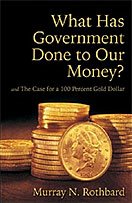

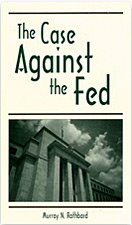

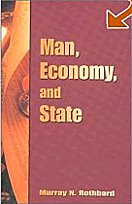

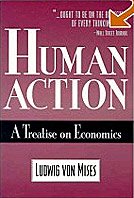
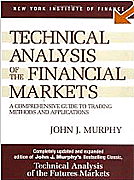





0 ΣΧΟΛΙΑ (COMMENTS):
Post a Comment
<< Home